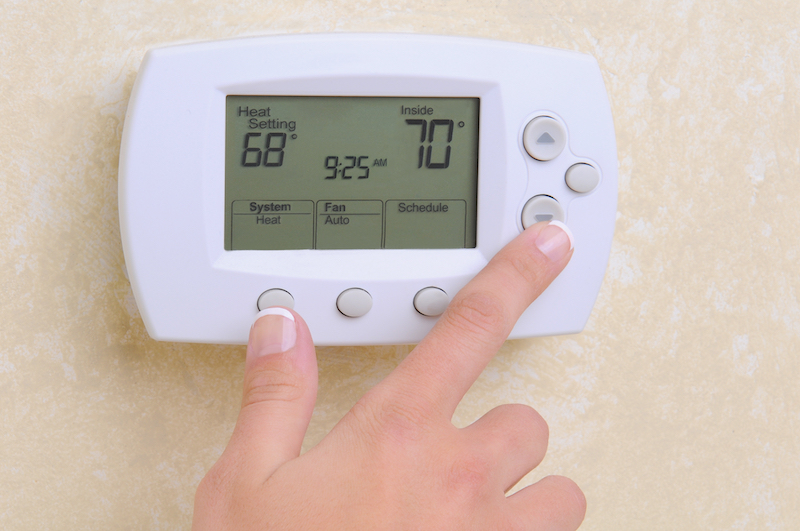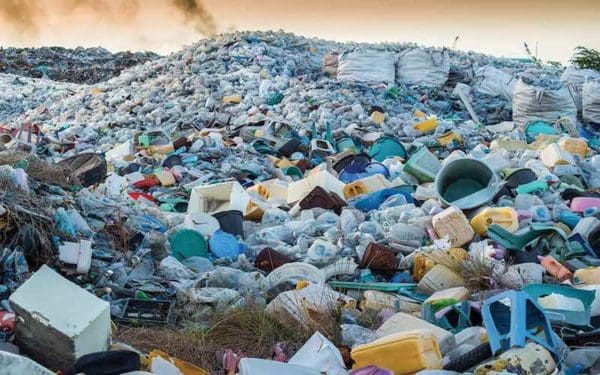
Vermonters deserve affordable heat that doesn't damage the climate. This law can help. Photo: Shutterstock.
Earlier this year, Vermont legislators overrode Governor Scott’s veto and enacted the Affordable Heat Act into law. This new legislation will put the state on a path toward slashing polluting emissions from our buildings and cleaning up our heating fuel supply. We couldn’t have gotten this law over the finish line without your help – but our work isn’t over yet. Now, we need to implement the law and ensure it actually reduces carbon pollution. Let’s look at what’s next for the Vermont Affordable Heat Act.
How the Affordable Heat Act Will Work
Most of the state’s households and businesses burn imported oil, propane, and gas for heating. Over time and if done right, the Affordable Heat Act will wean us off such costly, price-volatile, and climate-damaging fuels. This strategy is especially important given that heating our buildings is one of the largest sources of climate-polluting emissions in Vermont.
The law will require companies that bring fossil fuels into Vermont to offset their sales of heating fuels by obtaining clean heat credits. The more fossil fuels a company brings in, the more clean-heat credits it must earn. Your local fuel company can earn clean heat credits by helping Vermonters switch their heating systems from fossil fuel-powered systems to cleaner systems like cold-climate heat pumps, geothermal, or heat pump water heaters. The home or business owner decides the timing of these switches based on when they are ready to replace their heating system.
Fossil fuel companies can also earn credits by helping Vermonters weatherize their homes and businesses so they use less energy to stay warm, lowering annual heating bills for consumers. Cleaner energy sources combined with less energy used overall mean fewer planet-warming emissions.
How does this work? Let’s say a customer decides to switch out a water heater powered by fossil fuel for one powered by clean electricity. A fuel dealer could help the customer install the new water heater or could contract another company to install the water heater. The new electric water heater would generate a clean heat credit because that building would stop burning fossil fuels to heat its water, which reduces climate pollution. The customer would still have to pay the cost of switching out the water heater, but they may be able to take advantage of expanded incentives created by the Affordable Heat Act as well as new incentives in the federal Inflation Reduction Act to lower the upfront cost of installation.
Essentially, the law makes fossil fuel companies change their business models to keep running. These companies will either need to progressively transition to supplying cleaner heating options or buy excess credits from other businesses transitioning to clean heat themselves. And, the law will have to help meet Vermont’s mandate of slashing climate pollution from buildings 40% by 2030 and 80% by 2050.
Implementing the Law
The Affordable Heat Act directs Vermont’s Public Utility Commission to create a plan called the Clean Heat Standard. The plan will map out the way to accomplish the law – such as how the credit system works to ensure Vermont buildings stop burning climate-damaging fossil fuels.
Before the Commission gets started, however, it is taking expert input on how the drafting process should go and what should be included in the final plan. CLF has been involved in this process to ensure decisions about the Clean Heat Standard are transparent and don’t leave any Vermonters behind.
We are particularly interested in three aspects of the law.
- Evaluating climate-damaging emissions: We’ll be keenly focused on the implementation of the law’s requirements to rigorously evaluate all emissions tied to fossil fuel alternatives because not all alternatives are climate solutions. This math is incredibly important to ensure we’re actually meeting the goals of both the Affordable Heat Act and Vermont’s climate law.
- The consequences of biofuels: We’ll also be scrutinizing the consequences and burdens of biofuels. The law creates limitations on, and phases down the eligibility of, biofuels for inclusion as clean heat measures. The only biofuels that will qualify as clean heat measures are those that are less polluting than fossil fuels – not just when they’re burned, but also when they’re grown, constructed, transported, and used. Any eligible biofuels must become progressively cleaner over time and should not have harmful impacts on people or the natural world. We will be holding the government accountable for sticking to this limited application of biofuels.
- Equity at the forefront: CLF will be watchdogging the Clean Heat Standard process to ensure that equity is at the forefront of all strategy and decision making. One important element of the Affordable Heat Act is the law’s emphasis on social equity in this transition away from fossil fuel-based heating. The Public Utility Commission is required to ensure a significant amount of a fuel company’s clean heat credits are earned by assisting low- and middle-income households weatherize homes and install heat pumps. They will also be required to target clean heat benefits to renter households with tenant-paid energy bills. It is imperative that the law and its plan benefit all Vermonters and leave no one behind.
What Comes Next
The Public Utility Commission will conduct this planning process over the next year and a half. You will have an opportunity to use your voice to help support the plan’s execution. Sign up for CLF’s e-news to be the first to know when those opportunities arise.
We couldn’t have gotten this law over the finish line without your help. Now, we can’t implement it fairly and effectively without the power of your voice. With your support, CLF will remain a leader in the effort to make this innovative climate solution an effective model for New England and beyond.



